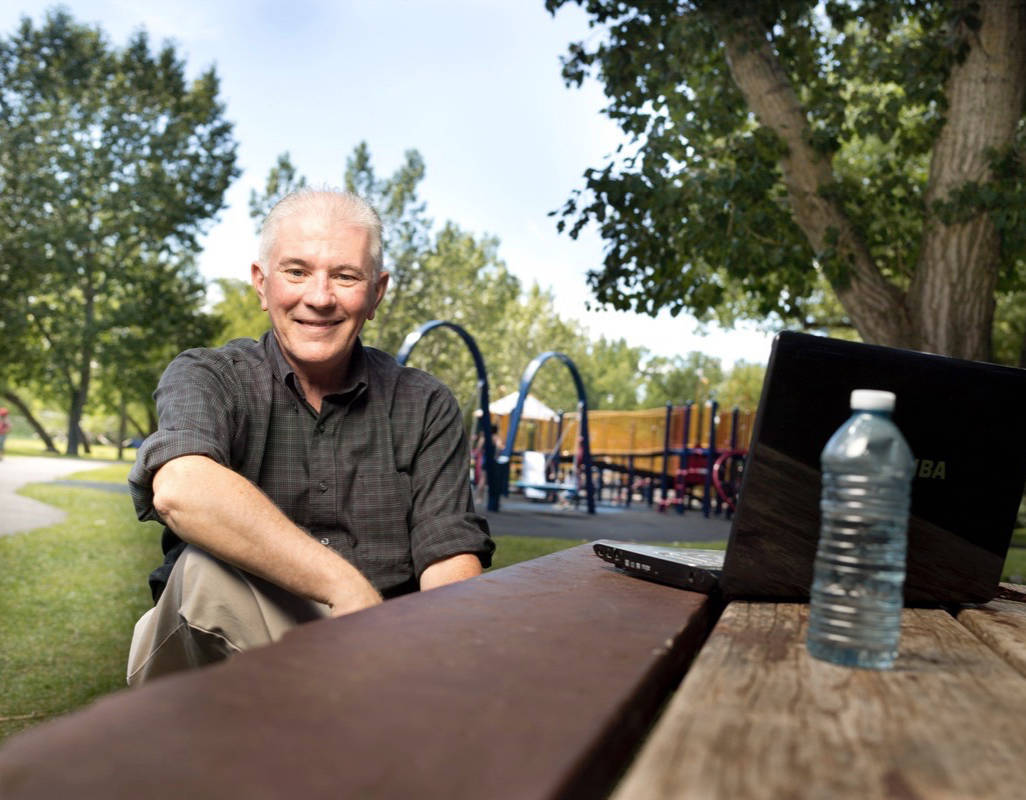January is Alzheimer’s Awareness Month, and this year’s theme is all about helping society at large better understand the illness.
Organizers say it’s all about challenging attitudes and stopping the stigma.
The campaign also showcases the stories of individuals from across the country living with Alzheimer’s or another form of dementia.
Sadly, research shows that stigma around dementia is rampant, according to a release.
In a survey last year, one in four Canadians said they would feel ashamed or embarrassed if they had dementia, while one in five admitted to using derogatory or stigmatizing language about dementia.
One of the campaign’s spokespeople, Roger Marple, continues to speak out in an effort to not just bolster awareness but also to quash misconceptions about dementia in general.
He was diagnosed with young onset Alzheimer’s four years ago at the age of 57.
These days, Marple, who also writes a blog sharing some of his experiences, said he’s focusing on optimism.
“My attitude has changed a lot over this last year,” he said. “Don’t get me wrong – it’s not flowers and roses – and we still have a very long way to go, especially in social attitudes.
“But having said that, worldwide, it’s changing in the here and now,” he said. “I am seeing change at a pretty fast rate in attitudes towards dementia,” he explained.
Last year, Marple was invited to a national dementia strategy conference in Ottawa.
“It was amazing,” he recalled. “It was basically the movers and shakers from across Canada – doctors, interest groups, people with dementia, family members, caregivers and loved ones,” he said.
“I focused on stigma of course, and there was also this forum on the diagnosis portion of dementia. My focus on that one was that you need hope in your diagnosis.
“Even some doctors miss that point. It’s all about quality of life and living with a good quality of life. Sometimes, you can focus on the terminal end of things and not the window of opportunity for living well,” he said.
“That was the message I tried to get across, and it turned out to be a really positive thing.
“Lastly, I really focused on First Link (a dementia helpline). I said it really works – we need to recognize this coast to coast and get the medical community using it more. And we need funding – stable funding for everywhere,” he said.
“So it’s exciting – it’s been a great year.”
In terms of his own story, Marple, who used to work in supply chain management for Alberta Health Services, recalls the point when it was clear there was something wrong. He was working on a spreadsheet and checked it over three times before he sent it to his boss.
His boss returned it to him and upon a closer look, Marple said the spreadsheet didn’t even make sense to him.
Marple was eventually diagnosed with Alzheimer’s Disease with vascular components.
“I feel it advancing, I really do,” he said of how he feels these days. “My memory is getting worse. I struggle with it. Having said that, I’m still doing okay.
“When I was first diagnosed, the only things I read was the doom and gloom of the disease. There was little or no conversation on any part of living well with the disease. It was just a dark place. But it’s changing in real time though.”
Marple added that sharing his story and helping stamp out the stigma energizes him, as people come up to him and say how grateful they are that he shares his experiences.
“My hope is that by speaking openly and letting people know it’s okay to talk about it, that others will also speak openly and then you get that chain of events,” he said. “When people have even just a ‘wee bit’ of understanding about it, I find that they are really often cool with it, and they are more open-minded,” he said. “It is so wonderful to see.
“It all comes down to understanding. All these problems we have with social attitudes and misperceptions – everything comes down to understanding.
“If we don’t speak openly, and if we don’t push back on misperceptions, or challenge the jokes, or take action – nothing will every change. Nothing.”
Marple said he also recently had a great chat with folks at the Primary Care Network in Red Deer.
“In my opinion, in Alberta, there is cutting edge stuff in our medical community working with our Alzheimer Societies. I also honestly think that Red Deer is leading the pack.
“The Primary Care Network is working with the Alzheimer’s Society, and I mean working ‘with’ them. Every nurse with the Primary Care Network has to go through a detailed orientation on dementia through the Alzheimer Society,” he said.
Meanwhile, throughout January and the remainder of the year, folks are invited to visit the campaign’s web site (www.ilivewithdementia.ca) to read and watch the stories of people getting on with their life in spite of dementia.



